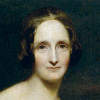“ When an upright man is in the greatest distress, which he might have avoided if he could only have disregarded duty, is he not sustained by the consciousness that he has maintained humanity in its proper dignity in his own person and honoured it, that he has no reason to be ashamed of himself in his own sight, or to dread the inward glance of self-examination? ”
Immanuel Kant, Critique of Practical Reason (1788). copy citation
| Author | Immanuel Kant |
|---|---|
| Source | Critique of Practical Reason |
| Topic | humanity consciousness |
| Date | 1788 |
| Language | English |
| Reference | |
| Note | Translated by Thomas Kingsmill Abbott |
| Weblink | http://www.gutenberg.org/cache/epub/5683/pg5683-images.html |
Context
“Has not every even moderately honourable man sometimes found that, where by an otherwise inoffensive lie he might either have withdrawn himself from an unpleasant business, or even have procured some advantages for a loved and well-deserving friend, he has avoided it solely lest he should despise himself secretly in his own eyes? When an upright man is in the greatest distress, which he might have avoided if he could only have disregarded duty, is he not sustained by the consciousness that he has maintained humanity in its proper dignity in his own person and honoured it, that he has no reason to be ashamed of himself in his own sight, or to dread the inward glance of self-examination? This consolation is not happiness, it is not even the smallest part of it, for no one would wish to have occasion for it, or would, perhaps, even desire a life in such circumstances. But he lives, and he cannot endure that he should be in his own eyes unworthy of life.”
source



